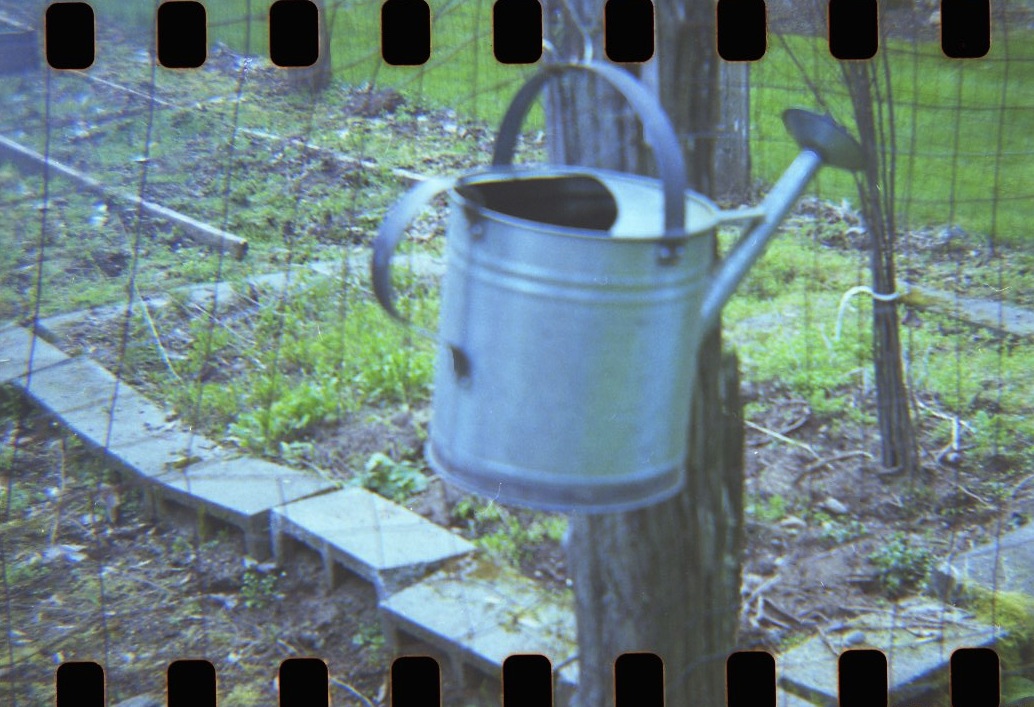MFA Alternatives (In The Word Cellar)
 Monday, January 16, 2012 at 1:36AM
Monday, January 16, 2012 at 1:36AM 
This installment of In The Word Cellar is a bit late, either by a few days or a whole month, depending on how you're counting. I started it in December and then lost it when Squarespace hiccupped and deleted it. I put it on hold until last week, and I'd intended to have it up on Wednesday, but I was sucked down the vortex of project planning as I whirled and twirled like a dervish to get my new courses and workshops ready. (Last week's column was all about overcoming my sticking points between brainstorming and implementation. I'm happy to have forged ahead through the sticky parts.) And now, onward to this week's column!
So you've read about my road to MFA-ville, pondered why someone might pursue a graduate degree in writing, looked at how to research and choose a program, and learned all about the low-residency model. Maybe you've started your own list of prospective schools or put the MFA experience on your bucket list.
On the other hand, maybe you've decided hell-no-I-don't-want-to-go-to-grad-school! Or maybe it's just not a feasible option for you right now. Well then, this post is for you.
As I've said all along, I don't believe that you must get a degree to become a better writer or to be published. I knew that I could have found everything I wanted (a writing community, feedback on my writing, craft lessons, and connection to the writing world) inside an MFA program or outside of it. I chose one possible path, but there are many others.
Here are my suggestions for alternatives to getting an MFA in writing. (These also serve as reminders for myself, post-MFA, of what I can do to keep growing and learning and writing.)
Read. Read a lot. Read literature. Read in your genre and far outside of it. Read for pleasure. Read for osmosis.
Reading good literature—the kind we'd like to write—infuses us with a knowledge that goes beyond what we may learn from textbooks or lectures: good literature settles deep within us so, when we write, we can summon what we've received from our predecessors—to emulate, to build. ~ Renee Ronika Kluug, "On Writing: Why Reading Matters," guest post on Rogue Writer
Read books about the craft of writing and about the writing life. (Randy Susan Meyers' post "My Homemade MFA" on Beyond the Margins has a nice collection of quotes of writing advice.)
Learn to read like a writer. This is one of the most important skills I've acquired. How do you read like a writer? Ask yourself why you like a piece of writing. What do you admire in it or dislike? What do you want to do in your own work? Try to see how an author does what she does. I know this sounds techical and like I'm telling you to kill the joy and magic of the written word, but it's not like that. Study other writers as the artists and the technicians that they are. Identify authors' strengths, and turn to them when you need help with something in particular. Let your bookshelf be your writing apothecary. Are you struggling with structure, voice, or incorporating humor into your work? Read the authors who do these things well. Learn from them through osmosis and through conscious study.
Get critical and respond like a writer. One way you can learn to read like a writer is to write critical responses to or papers on a piece of writing. (Yes, write papers for yourself.) I explain what critical means here in this post; here's an excerpt from it:
First off, it's not nearly as dry, boring, or terrible as it sounds. Part of the MFA program is learning to read as a writer; to dive into another author's work and begin to figure out how she made the magic happen on the page. This is learning to look at creative work with a critical eye. Not critical in the sense of being harsh or belittling. Rather, this is about applying critical thinking skills to the craft of writing.
[Keep reading here (scroll down to the subheading called "The critical work."]
Read critical and craft essays in publications such as The Writer's Chronicle and Hunger Mountain's The Writing Life.
Write. I know this should go without saying, but I'm saying it because I need to hear it. Write. A lot. Keep writing. And do it again the next day.
If you write a bad story, the way to make it better is to write three more. Then look at the first one. You will have grown in understanding, in honesty. You will know what to do to it. And to yourself. ~Brenda Ueland, If You Want to Write: A Book about Art, Independence and Spirit
Mind the gap. There's always a gap between who we are and who we're becoming, between our current skill level and what is possible. Jen Lee talks about the gap in The Emerging Icon Series. Ira Glass (from "This American Life") talks about the gap between your ability and your taste. Don't let the gap stop you from creating. Be aware of it and keep forging ahead.
Set goals, deadlines, and dreams. If you, like me, are not to be trusted to hold yourself accountable, call in back-up. Support and accountability are priceless in all of life, and your writing life is no exception. Do you need external deadlines to make sure you get shit done? Do you need people to ask you what you're working on? Do you need project and submission deadlines to make sure you actually write? I do. I wish it weren't that way, but it is. Forget the shame and guilt of how you think a writer is supposed to operate, and do what works for you. If it works for you, then it's working. If you're writing, then there's no need for guilt or shame about not writing.
Share your work. Support and accountability, baby. Share your drafts with writers and readers that you trust. It's a good exercise in courage, and it's a good way to learn about your blind spots. And that leads me to the next point...
Workshopping is a verb. Share your work with trusted writer-peers and get their input on what's working well and what isn't working as well in your writing. Words are wonderful and slippery things. They will mean different things to different people. You don't have to change things based on another person's vision or opinion, but if nobody in the group understands that your main character is a ghost, and you wanted readers to understand that your main character is a ghost, well, it's time to rethink how you present Ghosty. (I've written more about dealing with feedback here.) (If you're looking for a small group to workshop with, I'm facilitating one here.)
Give good feedback. This is still about sharing your work and workshopping with other writers -- and about reading/responding like a writer. Practicing giving useful, respectful feedback on your peers' work will deepen your own understanding of your craft. It will make you a better writer.
Submit. Send your work out into the world. Publish it on a blog. Submit to magazines, newspapers, literary journals.
Literary journals! Read them, subscribe to them, and send your work to them. Volunteer with them. If you don't know much about lit journals (I didn't just a few years ago), check out NewPages.com to get the lay of the land. (Are you interested in learning more about lit journals? Should I write a separate post about them?)
Find a mentor. Living or dead, real or imaginary.
Attend conferences and readings.
Take writing classes (online or in person).
Go on a writing retreat.
Travel. Seek adventures. Do stuff. Write about it.
I'm getting a little punchy here at the end of this list, but it's all advice that I myself need to hear.
What about you? What MFA alternatives can you share with us? Please chime in below.
** ** **
{In The Word Cellar normally runs on the second and fourth Wednesday of the month. Read other posts in the series here.}
 in the word cellar,
in the word cellar,  mfa,
mfa,  writing,
writing,  writing life,
writing life,  writing tips
writing tips 


